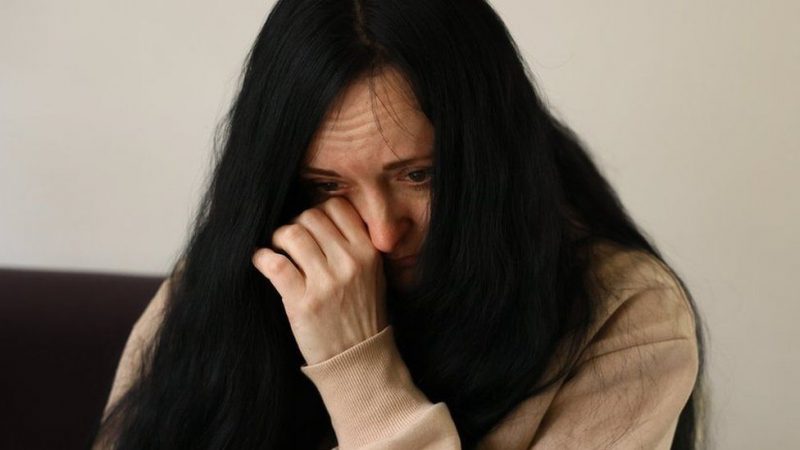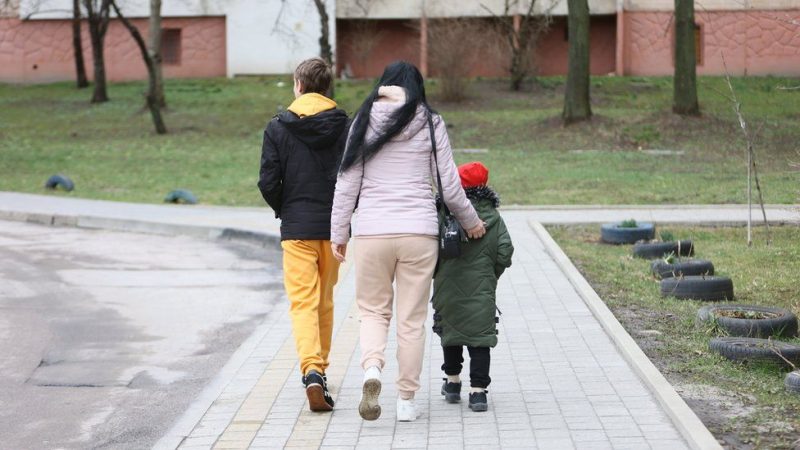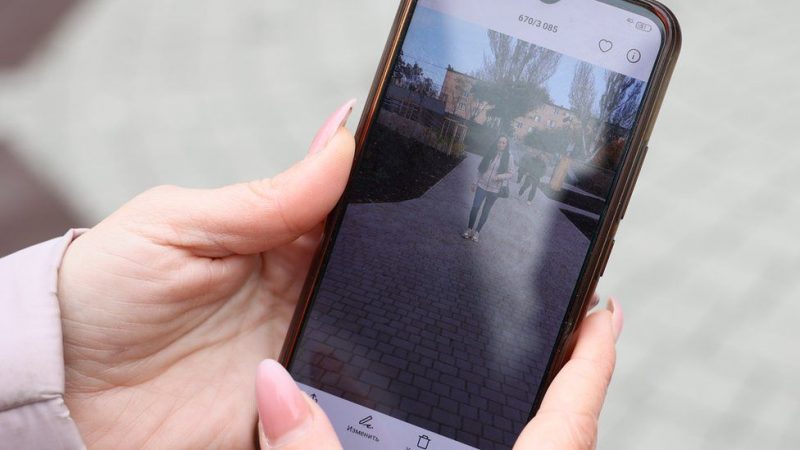[ad_1]
Thousands of civilians have been stranded in the besieged Ukrainian city of Mariupol without electricity, running water or gas.
Numerous attempts to open corridors for aid distribution and evacuation of residents have failed. For those who have managed to escape, the suffering is not over, especially for their children.
The first thing they did was buy bread, sausage and water. Nadia Denysenko and her children had fled after three weeks in Mariupol, under siege and under constant attack, living in their cold apartment, where windows had exploded after a shell fell nearby. For days they had very little to eat and almost nothing to drink.

“We were very happy to have bottled water. We finished it in seconds “, said Nadia, recalling the moment she was with her children 14, 5 years old, and 12-year-old daughter. “When the war started, my youngest son said ‘Mom, I wish I had some bread’“She told the BBC.
Theirs is another story of extraordinary courage amid an almost unbelievable tragedy. Inside Mariupol, they spent their days in the corridors behind the thick walls. The nights were in the basement. They usually woke up at 5:00 p.m. Strong outbursts, sometimes far, sometimes near, let no one sleep.
“It was hell. Just hell. “said the 39-year-old who worked in a supermarket in the city.
“We were living our days not knowing if we would wake up alive in the morning.”
Mariupol has seen the worst horrors of Russia’s aggression against Ukraine. Thousands died as invading forces besieged the city, attacking it mercilessly from the air, land and sea.
Many of them are buried in mass graves, without ceremony and without name. Street after street, building after building, most of Mariupol is now in ruins.

“We were heavily bombed. They were not interested in anything im My son kept asking, “Why are there explosions?” Said Nadia. “I told him, ‘Don’t worry son, it’s just fireworks.’
During their time in the city, the neighbors cooked what little food they had in a field kitchen on the street.
“We often stayed outside because it was warmer than inside.”said Nadia.
In the last two days there, they had nothing to eat. Neither cereal or oatmeal. It did not matter if you had money. There was no food left in the city.
In one of their attempts to escape, they went to a place where cars had been assembled, believing it was an evacuation point. Ata u sulmuan.
“It was intentional.” she said. They survived, Nadia said, after a man pushed her and the children “like puppies” inside a damaged building, where they thought they would be protected.
“A car was hit by a shell. The driver, a soldier trying to get the family out of town, was wounded in the head. She and the others brought her to a basement, where a girl, who was not a doctor, made some stitches using an ordinary needle and thread. After seeing all this, we returned home and my youngest son asked me, “Mom, why are they trying to kill us?”said Nadia.
“What can I say?” I do not know.”
Days later, on March 17, they finally managed to leave the city as part of a convoy of private vehicles. They first arrived in the village of Mangush. They then headed for Berdyansk, which is under Russian control.
From there, they boarded a bus to Zaporizhzhia. The road, she said, was full of checkpoints set up by Russian soldiers or Russian-backed separatists.

“They checked us, especially the men, our phones.”, said Nadia. Knowing that this could happen, she had already deleted all the photos she had from Mariupol.
“When we left the city, I was covered in mud. I had not taken a shower. “When you have nothing to drink, do not think about taking a shower.”
It took them five days to travel from Zaporizhia to Lviv, in western Ukraine, a region largely spared Russian attacks. One of the few signs here that this is a place at war is the sound of air raid sirens, which can sound several times a day.
“We are safe and can buy food, but my son still hides food: bread, candy. He hides it in different parts of the apartment where we are staying“, she said.
“I will eat something tomorrow”he said.
Nadia thinks her children will overcome what they have gone through. She said her daughter, who did not want to come with her for the BBC interview was a communicative person but had not yet made friends in the new town.
She wants to return to Mariupol one day, when the war is over and the city is rebuilt.
“There is nothing left of him, the city was flourishing and developing. He was just perfect “, teat it. The only thing they did not have, Nadia said, was McDonald’s.
“I just do not understand why it all happened. Why did they do it? ”
top channel
[ad_2]
Source link















